 his week's Thursday feature is an interview with Katie Garcia, the founder and president of Athene Strategies, a strategic and crisis communications consulting firm. I asked Katie a series of questions about an important topic for any fundraiser, how to communicate with your constituents during an organizational crisis. 1) When a non-profit organization finds that it is in the midst of a crisis, what is the first steps that the staff should take? The first step that an organization needs to make when in a crisis is to recognize that a crisis is occurring. When people think of crises, often times they think of the effects of poorly handled crises – they think of organization disasters. But a crisis is not necessarily a disaster. A crisis is a time when an organization is unable to operate normally. When handled poorly, a crisis can lead to a loss of trust and confidence in those who matter most and cause reputational harm. But when handled in a timely and effective way, a crisis can actually become an opportunity to gain competitive advantage, to build trust and confidence, and move the organization forward in achieving its goals. So the first step is to recognize when an organization is or will soon not operating normally. The second step is to clearly identify what the crisis is. Crises are organizational problems, not simply communication problems. Communication in and of itself is not enough to end a crisis. (Communication can exacerbate a crisis or organizational problem though). If you do not identify where the actual problem lies, you will not be able to respond in a way that will effectively end the crisis. Therefore, you need to clearly identify what the organizational problem is before you respond to the crisis. The third step is to decide how to respond to the crisis by asking and answering the following question: What would reasonable people appropriately expect a responsible organization to do when faced with this? This question is important. It is not asking what it is that an organization wants to say. That is self-indulgent. And while it might make an organization feel good, it will not move those who matter most to continue to support with the organization. Rather, the right question focuses on what the people who matter most – an organization’s stakeholders – would reasonably expect a responsible organization to do. And if an organization asks and answers this question, and then responds based on that answer in a timely way, an organization can end the crisis, increase trust and confidence in the organization, and get back to operating normally. 2) Is there any difference in how you handle a controversy versus a crisis with respect to communication? A controversy may or may not become a crisis. A controversy is a matter of public dispute, debate or disagreement. If a controversy gets to the point where the organization can no longer operate normally, then the response would be the same as for a crisis—to ask and answer the question: What would reasonable people appropriate expect a responsible organization to do when faced with this? And depending on what the crisis is, the response will differ based on the answer to that question. But the process is the same as with every crisis. However, a controversy may not become a crisis. For example, in a university setting, a dispute over hiring a professor because of their identity or a change in a tuition model are not crises. In that case, a controversy could be an opportunity to showcase the mission, values, and work of the organization in a way that reaches a larger audience than the organization would otherwise be able to reach. But to do that effectively, an organization would need to think strategically about 1) what it wants to achieve; 2) who the organization needs to reach to achieve that goal; and 3) what the organization wants that audience to think, feel, know or do in order to help achieve that goal. 3) What's your advice for fundraising during a crisis? Fundraising during a crisis needs approached in a strategic way. Whether or not and how to fundraise during a crisis will depend on what the crisis is and how the organization is responding to it. Sometimes, it may not be appropriate to fundraise during the crisis itself. For example, if the crisis revolves around an accusation that leadership have unethically or illegally handled their organization’s finances, fundraising before the crisis is resolved may not be appropriate and can actually exacerbate the crisis. Other times fundraising could be part of or support the crisis response. For example, if there is a natural disaster that affects those an organization serves or where the organization operates from, it could be that the organization fundraises specifically to address that need. When figuring out if and how to fundraise during a crisis, it will go back to the question of: What would reasonable people appropriately expect a responsible organization to do when faced with this? Fundraising during a crisis should be done in ways that are consistent with or in support of the crisis response and are appropriate given the circumstances of the crisis. 4) What are the best signs that the crisis is over? The key indication that a crisis is over is that the organization goes back to operating normally. If the crisis is handled well, that moment could happen right after the initial response. If an organization responds effectively right at the beginning, then the crisis may end before it really begins. The best handled crises are the ones that no one, outside the response team, knows about or noticed. But if the crisis is not handled well or in a timely enough way, or if the response involves some sort of shift within the organization – whether it be in personnel, leadership, or processes – it will likely take more time to get back to operating normally. And normal operations after the crisis may be different than what it was before the crisis. 5) What are your 3 favorite tips for handling the communication during a crisis? 1.) Take a deep breath and a step back. It is difficult when an organization you have devoted yourself to is in crisis. As human beings, it is in our nature to respond emotionally first when faced with a crisis. Whether it be with anger, confusion, sadness, panic, disbelief, denial – whatever you may be feeling, take a deep breath. And then another one. Find a way to stay calm. You will not be able to think clearly or respond effectively if you become consumed in your own feelings about what is happening. And then take a step back. Look objectively at the situation. See the whole board. Only then will you be prepared to respond to the crisis. 2.) Remember that leadership is not about you, it’s about who you serve. Leaders are charged with making decisions for the good of the organization. Sometimes that means doing or saying things that you may not be comfortable with or may not want to say or do. During a crisis, it is only too easy to get stuck in focusing or making decisions based on what you want to do, rather than what you need to do to fulfill the reasonable expectations of those who matter most to the organization. Remember when responding to a crisis that it is not about you or what you want – it is about your stakeholders. Leaders need to overcome the fear and inertia that leads to inaction in order to respond in timely and effective ways. 3.) Learn from past experience. We need to learn from past experience, both your own experience and the experience of others. In terms of crises, we can open any newspaper or watch any news program to witness what other organizations in crisis have done – decisions that either led to a crisis or decisions in how the organization responded to a crisis. Learn from these examples. They can guide you and organization as you answer that question of what reasonable people would appropriately expect a responsible organization to do when faced with this. What works for one organization may not work for another, but you can learn from other organizations. And in your own life, learn from your own experiences of facing crises. Learn from past crises in your life and the organization. What worked? What didn’t work? What could you or the organization have done differently? Let those past examples also guide you as you encounter crises or potential crises in your organization so that you can respond in timely and effective ways. More about Katie Garcia: Katie Garcia is the founder and president of Athene Strategies, a strategic and crisis communications consulting firm. For more than 10 years, Ms. Garcia has worked in the field of strategic and crisis communication and leadership development. During this time, she has advised leaders and organizations across multiple sectors including non-profits, international and national NGOs, religious institutions, educational institutions, political action campaigns, inter-governmental organizations, and small businesses. Ms. Garcia has trained and advised leaders and emerging leaders across sectors to improve their ability to communicate effectively in their positions of leadership. Prior to founding her firm, she served as Interim Communication Consultant for the Starr King School for the Ministry and Communications Consultant for Religions for Peace. She has also worked in organizations such as Freedom to Marry, Disaster Chaplaincy Services, and Logos Consulting Group. Hi! It's Jessica. I draw on the concepts that Katie presents in this article in my webinar presentation titled Fundraising in a Crisis. This webinar will launch Wednesday 3/18/20 for free as a resource for nonprofits to respond to the COVID-19 crisis. You can register here: www.realdealfundraising.com/crisiswebinar. 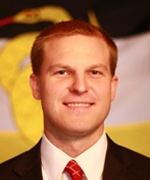 This week's Thursday feature is an interview with Markus Jones, Senior Vice President for Development of the Sigma Nu Educational Foundation. His organization launched their first ever phonathon last year and I asked him some questions about the process and what the results have been for his organization.
Phonathon fundraising represented a method of communication that I felt our organization had not fully explored in the past. Likewise, it offered a unique opportunity to reach non-donors, friends and parents of our members, whom we had never previously contacted. As a major gift fundraiser, I also saw the Phonathon as a means of prospect generation for future campaign efforts. We needed to resupply the pipeline for our mid-range and major gift officers to cultivate in the very near future. We have been very carefully referring outliers from this effort to those gift officers.
Additionally, we were met with similar concerns from other members of the staff who are not directly involved with the fundraising operations. I worked with our communications team and other fundraising staff to develop internal communications that addressed their concerns in advance of launching the campaign. We shared FAQs, details about database segments, call schedules, and sample call scripts with everyone on staff prior to making calls. We also invited them to actively engage with donors who may have questions or concerns along the way. After the first week of calling, we distributed “canned responses” to commonly heard objections to the staff assigned to the front desk at the Fraternity Headquarters. We also created a page on our website dedicated to the Phonathon which carefully identified the company we contracted to conduct the calls, constituents who would receive the calls, why we were calling, and the timeframe in which calls would be made. This also helped to mitigate some push-back we received from outside constituents and, I believe, added some validity to the callers’ efforts.
Side note: Our vendor employs a very diverse group of callers and actually worked with us to recruit collegiate members from one of our Sigma Nu chapters near the call center. The feedback from the callers was also really great. They all enjoyed working on the campaign and speaking with our alumni on the phone. This was very encouraging for future partnerships.
More about Markus Jones: Prior to joining the staff of the Sigma Nu Educational Foundation, Markus served as a Development Officer at the University of Southern Mississippi Foundation. He began his career in nonprofit development and volunteer management following Hurricane Katrina as the Director of Marketing and Resource Development for the United Way of South Mississippi in Gulfport, MS. Markus has worked in the nonprofit development field for his entire professional career and strives to continue this path in the future. He holds a bachelor's degree in Advertising from The University of Southern Mississippi and in his spare time Markus enjoys books, the outdoors, volunteering and traveling. There are a lot of ways to get these two terms muddled together and confused. Having worked at large state-supported universities for most of my career, I'm guilty of using the terms "annual fund" and "annual giving" interchangeably.
Here's the crucial difference: some institutions need unrestricted funding in order to make their operating budget and provide basic services to meet their mission. They have an annual fund, which is unrestricted. And while these organizations accept and appreciate designated gifts to programs and named funds, they still require a certain amount of unrestricted giving. There is a laser focus on unrestricted giving. The pitch is all about the importance and uniqueness of that organization's mission in our world. The need for support is tied to the worthiness of the institution itself. Other organizations just want loyal donors to make a gift of any level, every year. This is annual giving. Usually, it is not fund specific. For instance, at most large universities, the goal of the office of annual giving is to boost alumni participation rates and the ability to designate that gift to a niche department, program or scholarship is part of the pitch. Why would an institution that doesn't need operating dollars run an annual campaign? There are many reasons but here are a few:
I now work for an institution that needs operating dollars and "annual fund" doesn't just mean "small gift amounts". Major donors play a big role in helping our organization to meet our goals. I had to completely clarify in my mind the differences between raising money for the "margin of excellence" versus raising money to meet our budget. Unrestricted giving isn't value-add at many small non-profits and smaller institutions of higher education; it is a necessity. Deeply understanding that there are two very different approaches to annual fund/giving is essential if we are to communication effectively with our colleagues at other institutions. Make sure to ask questions about whether the annual fund is unrestricted giving only, whether it includes major gifts and whether your goals are calculated by what you can raise or by your budgetary needs. Finding a colleague at a similar institution is helpful if you are hoping to craft a perfect pitch for your annual campaign. Do you work for an annual fund institution or an annual giving institution? I'm on record defending both phonathon and direct mail as useful vehicles for fundraising. So out of fairness, I thought I owed my readers a post where I asked the question, "When is it time to throw out a medium?"
To figure this out, I first needed to consider a communication technology that is no longer relevant for fundraising marketing. So, please consider for this example, the telegraph. The telegraph was the first method of instant communication in the world. As such it was tremendously important during its heyday. We now have so many methods of instantaneous communication today that we can't fully appreciate what a marvel it was at the time. Still today, if we need instant communication, telegraph isn’t our only option. Email, social media, text messages, do the same thing as the telegraph but they do it with significant advantages. For instance, telegrams don’t contain visual content and they require a translator for the Morse code. Technology has far outpaced the telegraph as a medium for public relations, communication and fundraising. The reason we still use the telephone and direct mail for fundraising is because they still maintain significant advantages over other vehicles, despite the proliferation of those alternate vehicles. As I have stated elsewhere, phone calls are active asking, two-way personalized communication. Yesterday, I laid out exactly what qualities make mailings still relevant. It’s important that we are continue to be critical of each media we use for our message. We must be good stewards of the budgetary resources we are entrusted with. However, the fact remains that the more valid vehicles we use to ask for money, the more money we will raise overall. I've named this column "Thoughts for Thursday" and mostly it gives me a weekly space to bring up whatever topics I want to discuss. But, this week, I asked myself, "What's really on my mind?" I have a few things that have been buzzing around my brain lately.
But, I'd also like to hear from you. What are you struggling with? What solutions are you lacking right now? What trends are you baffled by? What ideas are you really digging right now? Please comment and let me know. Here are some of the bees in my bonnet:
Again, what's really on your mind? Watched any good TED Talks about philanthropy and fundraising lately? Read any inspirational articles? What's the question you wish you had an answer to right now?  When I was 22 years old, I got my first professional fundraising position. The philosophy of the organization was to hire new college grads who were smart, enthusiastic and cheap! Then, they basically threw us into a ton of job situations that we weren’t fully prepared for. It was a stressful, sink-or-swim situation and eventually was a major reasons why I left this job. I’m so very grateful for the time I spent there. Surprised? Don’t be. I would like to make a case for being deep in the job chaos. This is where you learn the most and grow both as a professional and a person. I planned a national convention, led a database conversion, started an internship program and I did all those things at the same time. When I left at age 24, I had gotten more experience than I would likely have in ten years at any other organization. Embrace the job chaos. Try to ride the wave and think of how much you’ll be prepared to put on your resume. You’ll have so many stories to reference in future job interviews. Use the wide range of experiences like a menu to decide which tasks you truly like and those that you don’t. Then you’ll know for sure what area you want to pursue with more depth in your next position. Although it never seems like it at the time, the chaos is a gift. Take advantage of it. In 1999, I saw a blurb on the Honors College listserv advertising for job in the call center. I thought, “Hey, I can talk to people. Why not?” (Little did I know that I would still be writing about phonathon and doing fundraising some 17 years later.) I interviewed and was hired. I arrived excited but a bit nervous for my first night on the job.
I entered the room and the manager told me, “Sit behind Julie and watch what she does. When you feel ready, you get on the phone too.” I watched Julie manipulated the automated computer and calling system and listened to her phone calls. “Do you have a script or checklist?” I asked. “Not really,” she said. “Everyone kind of makes it up as they go along.” Really, this was my introduction to being a student fundraiser! It’s amazing to me that I stayed. But, I’m stubborn. The manager that hired me left and soon a student supervisor, Becky, graduated took over operations. Becky taught me something very important: Look to best practices in order to improve and grow. She read books about how other call centers operated and visited phonathons at both peer institutions and aspirational schools. And she began to change some things. I became one of Becky’s student supervisors and was helping her implement these positive changes. She did things that made us feel like Chicken Little. “Instead of giving up immediately after one ask. We are going to ask two times for money,” Becky said. “Oh no! The sky is falling!” the supervisors would cry. But it didn’t. Our participation rate soared. Becky said, “I am going make it mandatory to ask for a credit card.” “The sky will fall!” we asserted. It didn’t and our credit card giving rate went through the roof. Time after time, this was the story. Soon, we began to believe her when she made “crazy” suggestions. I had no idea at the time but I was learning the basics of “evidence-based fundraising”: looking at the data to drive your decisions, not anecdotal evidence or your gut feeling. Your gut feeling is fallible. At the heart of it, evidence-based fundraising is about using the scientific method. Testing things and looking to the numbers to tell the truth of the situation. Complaints in the call center are one example of this: your boss hears of 3 complaints. To them it seems like a pattern, perhaps the beginning of a crisis. But – you need to put this into context for them. You could have had over 10,000 contacts that year. That means those complaints represent only 0.03% of your interactions with constituents! That’s pretty great. This is evidenced based fundraising at work. We can all be a bit “Chicken Little” sometimes, so we have to have the discipline of the evidence to fall back on before we make decisions that can keep from our full potential at best, or at worst, can hurt our institutions.  Goal: a personal or organizational desired end Projection: a calculation of some future thing These two terms are related but subtly different. Generally speaking, for a healthy organization, the projections drive the goal setting process. However, at some organizations, the goal is a different (and perhaps totally unrelated) number to what you project that you can actually raise. At some institutions, an unreasonable, unrealistic goal situation may arise from a team leader that doesn't understand the difference between a goal and a projection and they pick an arbitrary figure that sounds good. ("Let's raise 10% more this year than last year", for example.) Or, it may have come about because of real budgetary needs of the institution for unrestricted support. Creating projections is a tedious process requiring a patient analysis of past performance and building models for future performance. So, if you have a firm goal set before you that you know (or believe) you cannot reach, why should you bother to create elaborate projections? Here are three important reasons to do projections even if your goal is already set: 1) Projections will help you to pinpoint the shortfall Setting projections shows you where the program is not performing to expectations and why the goal is not feasible (assuming that's true). It helps you to tell the story to those in management of what is really happening with the fundraising. 2) The process may help you to identify potential areas of opportunity Projections can show you opportunities that you might have overlooked. You build your projections segment by segment and it is possible that you might have some new segments that you haven't solicited before or that you have a new strategy for. These may help you get closer to your goal. 3) You need the projections to become a lobbyist for your program. It's illogical to do the same thing every year and expect different results. With a projections spreadsheet, you can show what's possible with more budgetary resources. You can tell the story that with [this much] future investment in the program, [this much] more revenue can result. I’ve talked about finding the stories of impact and sharing them with your donors. The importance of letting donors see how their gifts have transformed lives cannot be overstated.
Upon reflection, I realized that I have overlooked throughout my entire career, one very important story: my own. I have searched for the stories of scholarship recipients at every institution I’ve worked for and totally forgot to be recognize the impact donors have had on my own journey. I was lucky enough to have been awarded a 4-year leadership scholarship which covered my room and board at my alma mater, The University of Southern Mississippi, but I was also the recipient of a generous scholarship so that I could go to London one summer for study abroad. The Dean of the Honors College also sent me on two trips (one to Princeton and one to Washington, D.C.) using funds that I now know must have been generated from Annual Fund gifts. I also know that charitable donations helped to support the fantastic Honors Forum series that brought the most incredible scholars and public intellectuals to Hattiesburg, Mississippi. Here are some experiences that I have been able to have because I received scholarship support:
With sincere thanks, Jessica Cloud  Chronicle of Philanthropy The gold standard for philanthropy and fundraising jobs. I find it a bit frustrating that you have to select individual states in order to limit your search geographically but we can forgive that small frustration. If you are serious about growing your career, check this job bank regularly. (PS - I found out about my current position on this site.) Chronicle of Higher Education Pretty much the same as the Chronicle of Philanthropy, but specific to higher education. If you don't mind combing through or scrolling past lots of faculty positions, this is another great source. CASE Job Board The Council for the Advancement and Support of Education is the trade organization for higher education fundraisers, alumni relations, and communications/marketing folks. Their job bank is pretty good as most colleges and universities recognize it as a go-to place for higher education advancement professionals. AFP Job Board The Association of Fundraising Professionals website is super-clunky, but if you want to work for a smaller non-profit, arts organization or hospital, AFP's job bank is just the right place to search for that kind of a position. Higher Ed Jobs.com This site has done some significant upgrades since the last time I looked at it. They now have the capability to search by administrative area, which means you can restrict your search to just development and fundraising. There's also a nifty feature allowing you to search by region or metropolitan area. Nice! Individual Institutions pages Keep a short document with a list of institutions you would love to work for one day and copy their Human Resource job bank link into that document. Set a reminder in your calendar to check those at a regular interval (determined by your urgency to change jobs). Some institutions can't afford to advertise positions or feel that they are prestigious enough that they don't need to advertise. Keep tabs on what's happening at these institutions by checking at the source regularly. Head hunters Myers-McRae is the one I'm most familiar with, as I've been on search committees using this company to fill positions. It may take some searching but you want to find the one that is most popular for your preferred type of university and region. Myers-McRae tends to specialize at 4-year schools in the South. Google "higher education executive search firms" to begin your research process. A note: It is unlikely that this will be fruitful for you unless you have at least 5-10 of experience in a given area. Idealist.org This website is great for those that want to work for an organization that has an activist edge. A quick search and I found fundraising jobs at organizations that focused on women's rights, child welfare, climate change and disease prevention/cures. For profit serving not-for-profit You can develop a wealth of skills by working for a for-profit company that serves the not-for-profit industry. Companies like Blackbaud (Raiser's Edge database), Ruffalo Noel Levitz (phonathon and fundraising management), and Stelter (planned giving marketing) to name just a few are worth checking their career pages if you are looking to make a move. That's how I developed expertise in the area of phonathon by working with Ruffalo Noel Levitz (then RuffaloCODY) for five years. These organizations have established training systems and practice excellent benchmarking. There's no better way to learn best practices. |
Jessica Cloud, CFREI've been called the Tasmanian Devil of fundraising and I'm here to talk shop with you. Archives
June 2024
Categories
All
|
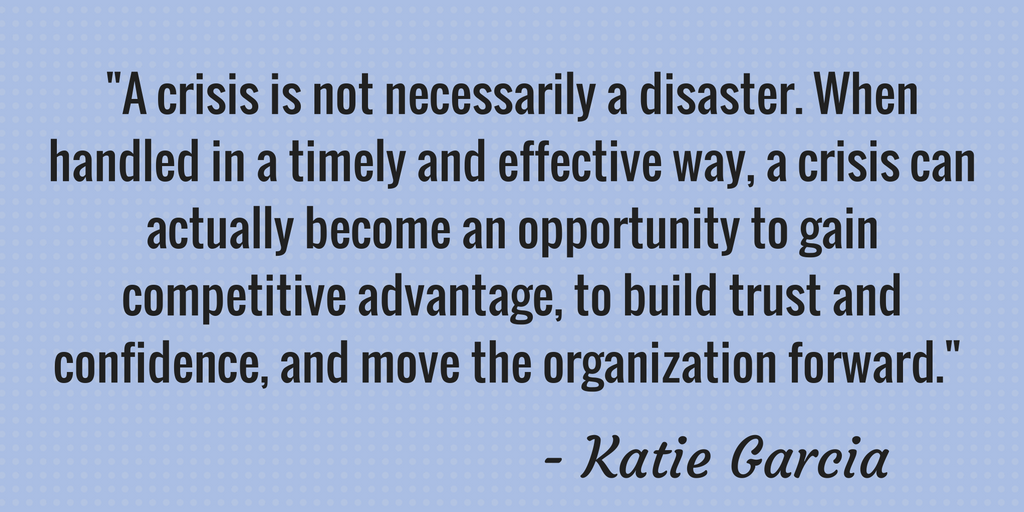
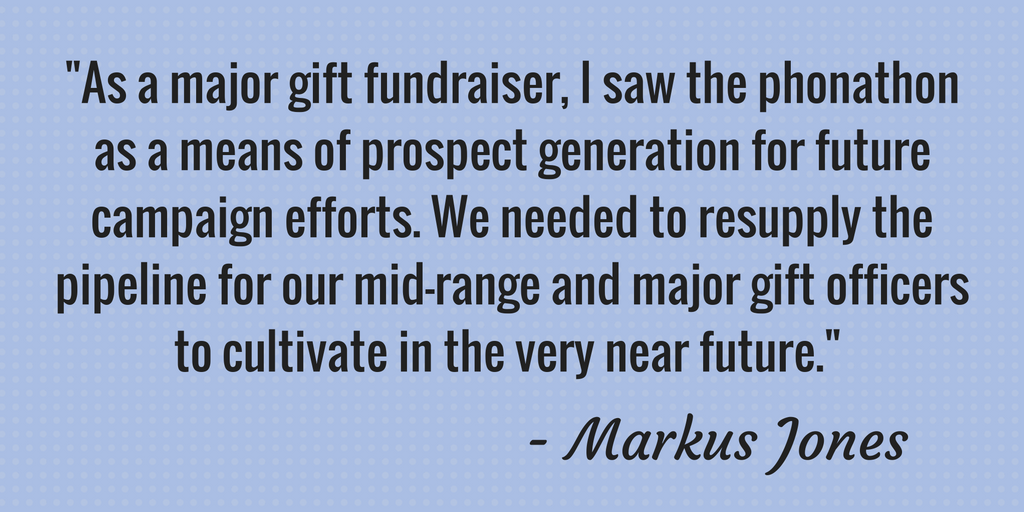
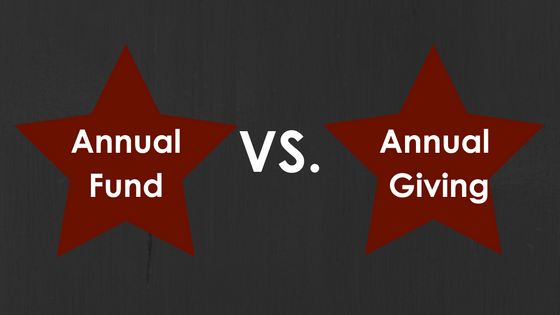


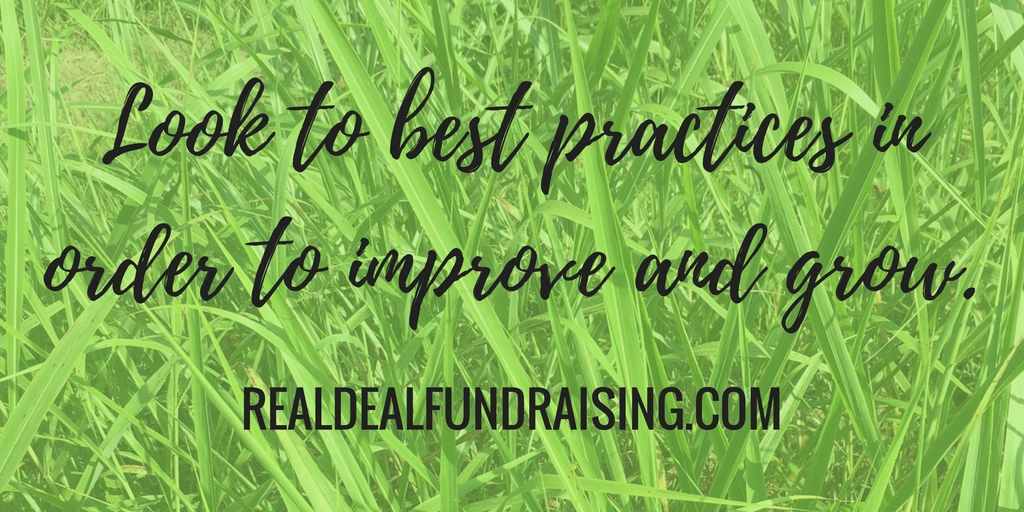
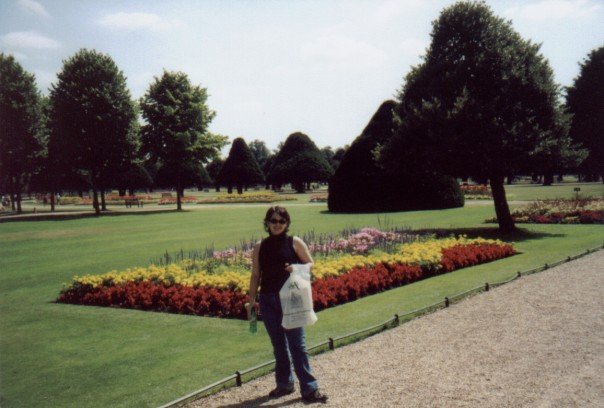
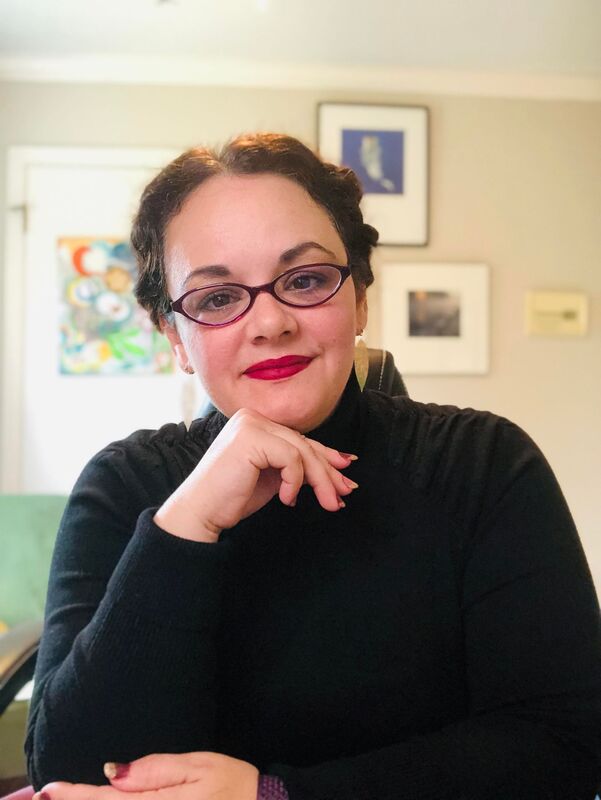
 RSS Feed
RSS Feed
